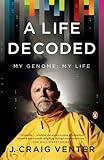Retailers – Reality Check Time by Jim Quinn.
Reading this article made me think that I might be able to explain the basic dynamic of the economic meltdown without having to mess with too many details. The details are important, but they can hide the structure.
Start with this basic premise: the government wants to promote industry.
And then add a second premise: the government finds out that people are more likely to buy things if they have easy credit.
So if the government supports and promotes easy credit, then it can get people to buy more stuff. When people buy more stuff, more industry is supported.
So, they find a way to do this. Unsecured credit is given to many people who in turn buy stuff. Whether it is houses or flat-screen TVs doesn’t matter.
But what happens when people have too much debt? They have to cut back. Not only do they have to cut back because they don’t have enough money to buy; they have to cut back even more because getting out of debt becomes a priority. People want to be free of the debt burden.
But since everyone was given the incentive to use credit everyone is cutting back at roughly the same time. Furthermore, the sudden drop in spending by a small group endangers the viability of industries that are dependent on consumer purchases. So the people whose jobs are endangered suddenly realize their debt load is too high and add to the growing number of people trying to get out of debt rather than purchasing gadgets.
Third premise, once those in government see that this is happening, they do all they can to hide the problem and extend the credit.
So the problem grows as the collapse is delayed.
The only solution to the problem is to end the artificial political debt encourager and enabler, suffer through a massive readjustment to the economy, and then grow at a normal rate from there.
Fourth premise, the government never admits that it is responsible for a problem or that it cannot fix a problem.
And so we go from disaster to disaster.


